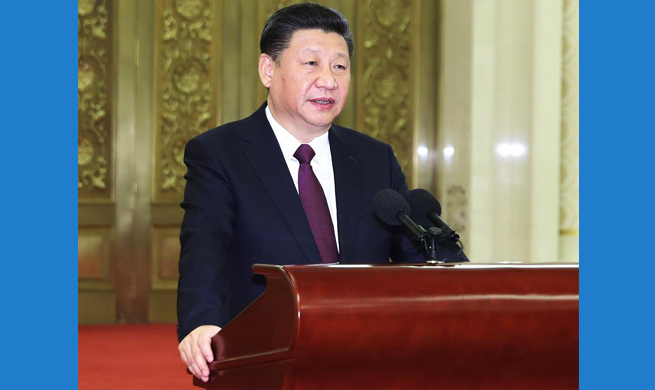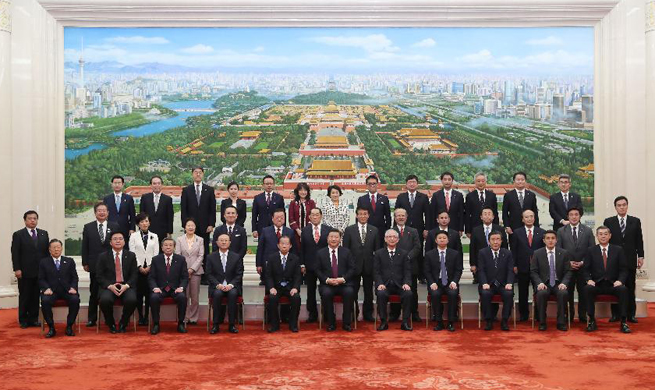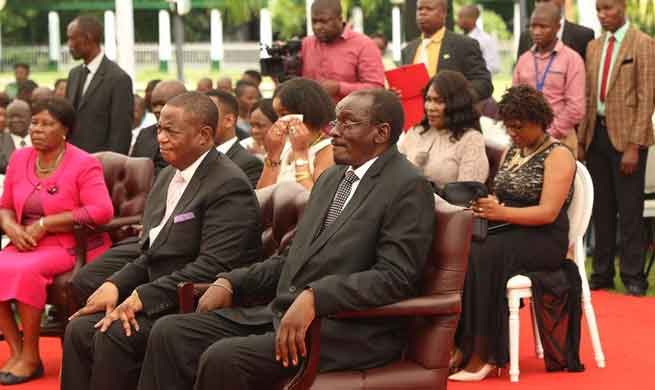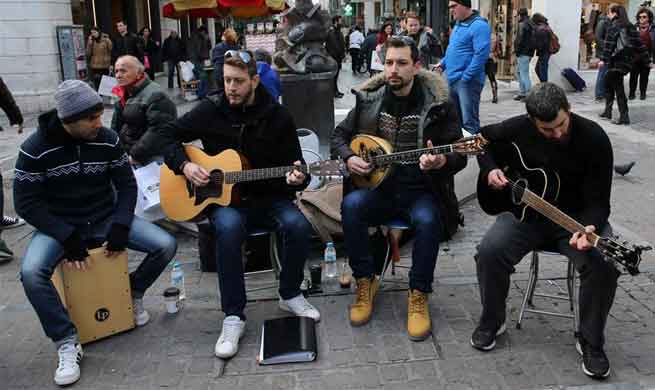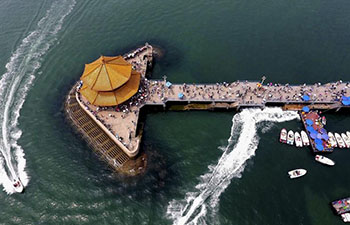by Alessandra Cardone
ROME, Dec. 28 (Xinhua) -- Italian President Sergio Mattarella dissolved the parliament on Thursday, clearing the way towards general elections in March 2018.
The end of the legislature was expected, after Prime Minister Paolo Gentiloni earlier on Thursday declared fulfillment of his cabinet's political mandate.
The dissolution of the Italian parliament -- whose five-year term begun in March 2013 -- was a due step in order for the government to set the date for new elections.
After the announcement, the outgoing cabinet gathered in late afternoon, and set the election date on March 4, as widely expected.
Holding a traditional end-year press conference in the morning, Gentiloni explained that his cabinet achieved the crucial goal of "bringing the legislature to an orderly end".
The outgoing prime minister also claimed his government -- and the whole legislature, which saw three center-left cabinets coming in succession -- brought about good results.
"Italy has recovered from its worst (economic) crisis since after World War II, also thanks to the efforts of Italian families and businesses," Gentiloni stressed.
"Our growth keeps now a solid pace, the double of what was expected at the beginning of the year."
"The gap between our growth rate and that of the euro-zone has more than halved in these last 5 years (since the beginning of the legislature)," he added.
Gentiloni urged all political forces and the next parliament "to not waste such efforts, nor put the achieved results at risk: the next legislature should not lack ambition, nor (the will of) reforms."
Yet, the country may face a period of political instability. The next vote will be the first test for a new electoral law approved in October, which introduced a hybrid system under which one-third of parliament is elected via first-past-the-post, and two-thirds by proportional representation.
The current political landscape is also fragmented, leading many analysts to expect a hung parliament as the most likely outcome of the elections.
Indeed, an average of opinion polls carried out in mid December showed anti-establishment Five Star Movement (M5S) on the lead with about 27.5 percent, followed by ruling, center-left Democratic Party (PD) at 24.3 percent.
While center-right Forza Italia (FI) party of former premier Silvio Berlusconi would poll third at 16.1 percent, and right-wing, anti-immigration Northern League would gather 13.7 percent.
Considering such projections to be right in next March, none of the major parties were strong enough to govern unilaterally without forming a coalition.
Although on the rise, the populist M5S was seen at a disadvantage for its repeated refusal to forge electoral alliances. Its candidate for prime minister Luigi Di Maio, however, lately suggested such strategy might change, in case of a positive electoral result.
With the center-left political area deeply divided and the PD losing ground in opinion polls, a center-right coalition of Berlusconi's FI, the Northern League and small far-right Fratelli d'Italia (Brothers of Italy) party might have the best chances to win a majority of seats.
But analysts believe that the future government might not be stable as previous ones with a hung parliament.










